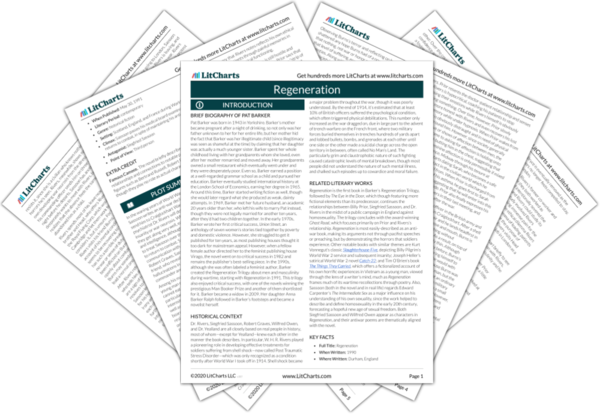Nakedness represents vulnerability and a character’s removal of their psychological defenses, which often creates intimacy between them and another person. The most significant use of nakedness as a symbol is between Prior and Sarah, even though neither of them are ever completely naked in the story, even when they have sex. Prior’s inability to be naked reflects his inability to remove his psychological defenses with Sarah, to let her truly see his fears and the trauma the war has left him with. However, in their last scene together after Prior is discharged from service, Prior is laying with Sarah, thinking about how he wishes he could be fully known by her, exposed. At the same time, Sarah climbs on top of him and starts undressing him, symbolizing her own assertive efforts to understand Prior, to peel away his defenses, which will ultimately allow for more intimacy, even though he will be vulnerable and exposed to her. Prior passively lets her undress him, signaling his acquiescence, but she gets tangled trying to unlace the leg wraps in his uniform, suggesting that although Prior will allow her to seem him, and although Sarah puts the effort in, his identity as a soldier still impedes their intimacy, their process of seeing and knowing each other, though it won’t forever.
Taking a different angle on nakedness, while Burns is hallucinating about dead animals hanging from a tree, he heeds Rivers’s advice to lean into his mania rather than run from it, so that he can eventually understand it. Rivers takes the dead animals down, arranges their corpses in a circle, and lays himself naked in the middle of them, symbolically suggesting that he is removing his defenses, his impulse to flee from his war neurosis, and giving himself over to it instead in hopes of coming to terms with it.








